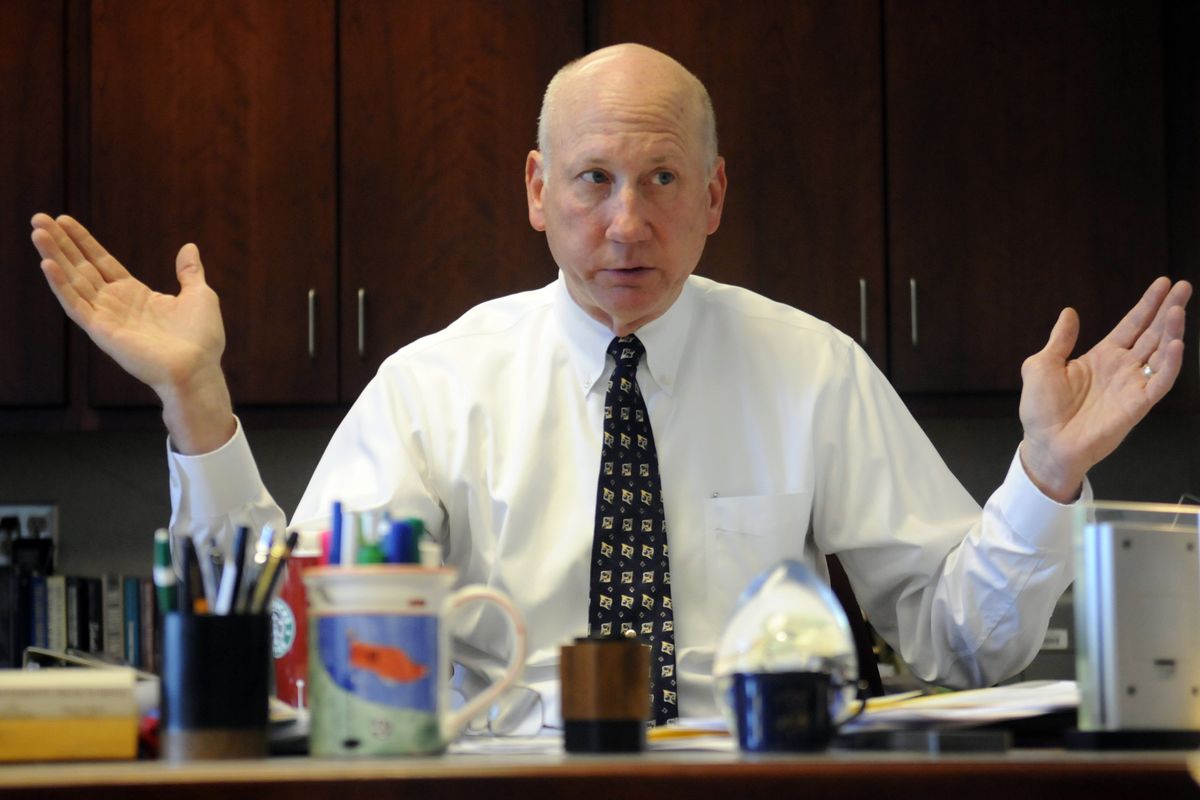U-Hi ends four-period days

It was a topic of conversation that once divided the Central Valley School District by the high school boundaries – whether to have four, 80-minute periods a day and three trimesters, or six, 55-minute periods a day and two semesters.
In 2004, it was decided by the school board to have the two high schools in the district operate on separate schedules – Central Valley would operate on a six-period semester system and University would operate on the four-period trimester system.
But starting this fall, University will revert back to the six-period semester system.
In a letter sent out May 20, U-Hi Principal Daryl Hart told parents about the change, citing three reasons for them.
He explained that with the loss of Initiative 728 state dollars the school will lose staff members for next year. The initiative, also knows as the Student Achievement Fund, was a voter-approved fund used for certified instructional support.
“Over the past two years,” Hart said in the letter, “we have lost 4.5 teacher positions.”
New state graduation requirements will also make a four-period day difficult. The new Core 24 plan will necessitate the district to study high school and middle school schedules and make changes by the 2011-’12 school year.
“This meant that U-Hi would be leaving the four-period day after next year,” the letter stated.
And finally, the new High School Proficiency Exam, which replaced the WASL, will be administered to students at the end of May. This would mean that around a third of the students taking the test would not be enrolled in a math class when the test is given, since many students don’t take math during the third trimester.
“It is my belief the trimester-based system is no longer in the best interest of our students,” the letter from Hart said.
Back when the decision was made to keep the trimester system at U-Hi, parents and students argued that an 80-minute class offered the students more one-on-one time with the teachers. They also said students had more time to ask questions. There were scheduling problems, but proponents argued that creative solutions were found, such as independent study sessions.
It was such a popular system, 89 percent of the teachers at the school voted to give up one trimester’s preparation period a year and to team teach classes.
But with changes to graduation requirements, budget cuts and a new testing schedule, the school had to make a tough decision.
Hart said he has been discussing the change with his staff to let them know what the situation was.
“A big part of the staff understood why I made the decision,” Hart said.
Some of those teachers understand it, but would prefer to keep their four-period day.
Don Ressa teaches advanced pottery in the fine arts department at the school. He said an 80-minute class allowed his students to have time to change clothes, set up their work stations and spend a good chunk of time working on their projects. With shorter classes, he estimates that each student will only get about 30 minutes of work a day.
“I understand why we’re doing it,” Ressa said. “The most important thing we can do is make the transition as easy as we can for our kids.”
David Smith, an English and debate teacher, said the difference between the two scheduling ideas is depth and breadth. With a four-period day, there is more time to delve into a topic.
“The ability to spend more time one-on-one with a student cannot be taken away,” he said of the schedule.
But with shorter classes, Smith argued that students will be able to take the classes they need when they need to take the HSPE.
“It’s not fair to have a third of the students without math,” he said, referring to the third trimester. “That’s not fair to the students.”
Smith took the time to imagine what his ideal teaching schedule would be like – a six-period, 80-minute class day.
“That’s not likely to happen,” he said. “I wish I had depth and breadth.”
Ryan Linehan is a junior at the school and the ASB president-elect.
“For me, the juniors and sophomores are not going to be pleased,” he said. He worries that his school days will feel longer and that he won’t get as much one-on-one time with his teachers.
Kenzie Valley, another junior, worries that the change will mean more homework outside of school. She said she feels that everyone tests differently – some students will succeed or fail if they are taking the class at the time or not.
“I don’t understand why we all have to go through it if none of us want it.” Valley said.